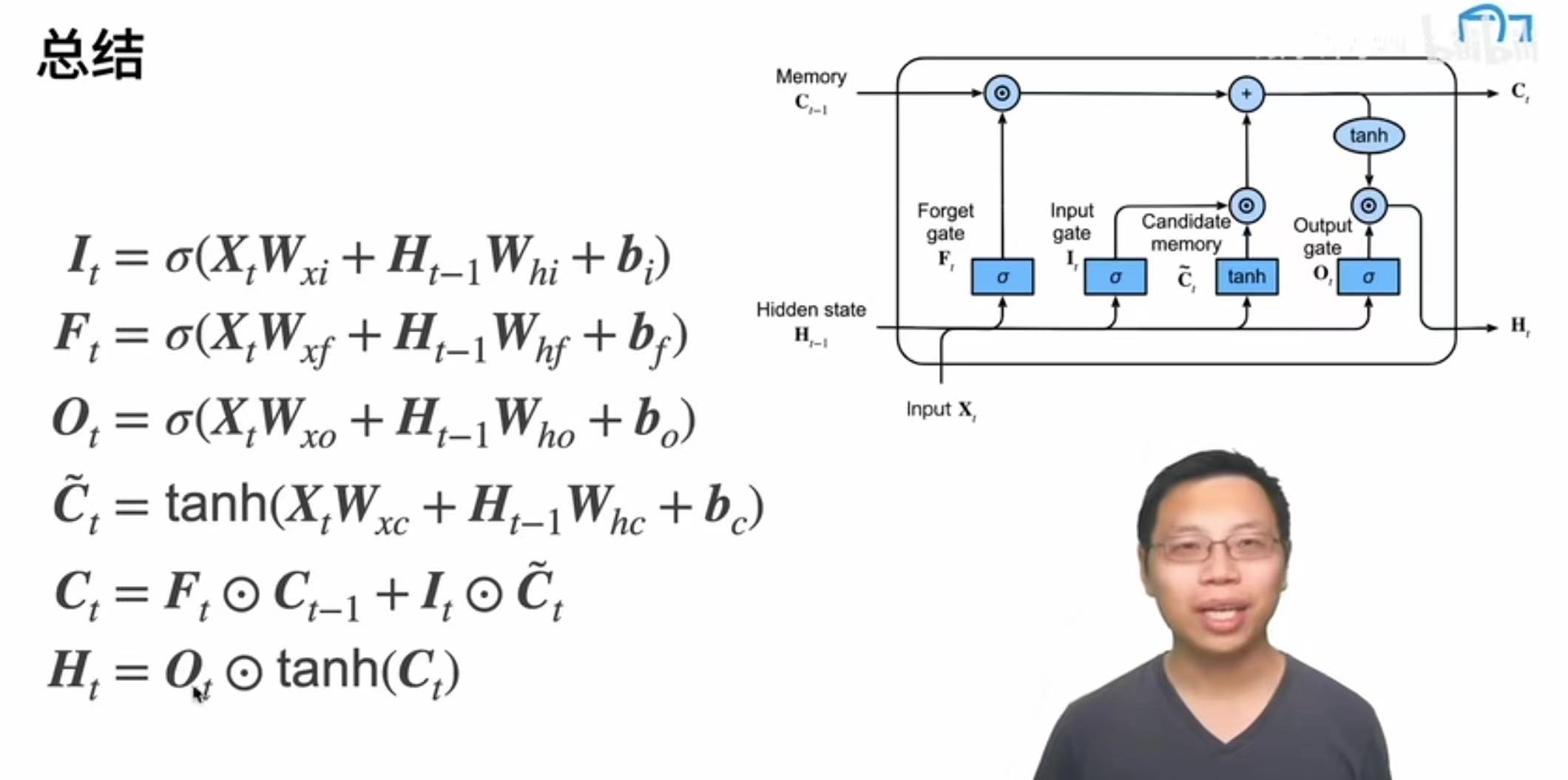RNN
【【循环神经网络】5分钟搞懂RNN,3D动画深入浅出】 https://www.bilibili.com/video/BV1z5411f7Bm/?share_source=copy_web
https://docs.pytorch.org/docs/stable/generated/torch.nn.RNN.html
from torch import nn
import torch
# 单层单向rnn
rnn = nn.RNN(input_size=3,hidden_size=3,num_layers=1,batch_first=True)
input = torch.randn(1,2,3) # batch_size * seq_len * feature length(input_size)
output,h_n = rnn(input)
# output 是rnn每个时间步的输出,形状为batch_size * seq_len * hidden_size
# h_n是最后一步时间步的输出,形状为num_layers * batch_size * hidden_size
print(output,h_n)
print(output.shape) #
print(h_n.shape)
torch.Size([1, 2, 3])
torch.Size([1, 1, 3])- 更新隐藏层状态:
- 输出:
- 是激活函数
LSTM

- input gate
- forget gate
- output gate
Attention机制
- 卷积、全连接、池化层都只考虑不随意线索
- 注意力机制则显示考虑随意线索,根据随意线索(查询query)来有偏向性选择输入,每个输入是一个值(value)和随意线索(key)的对
- 相对于之前的非参注意力池化层引入了w,w是可以学习的(使用高斯分布)